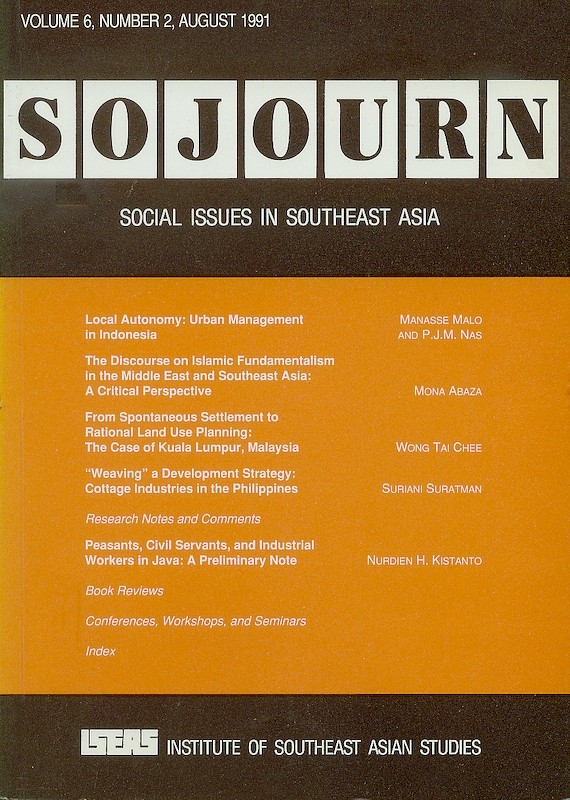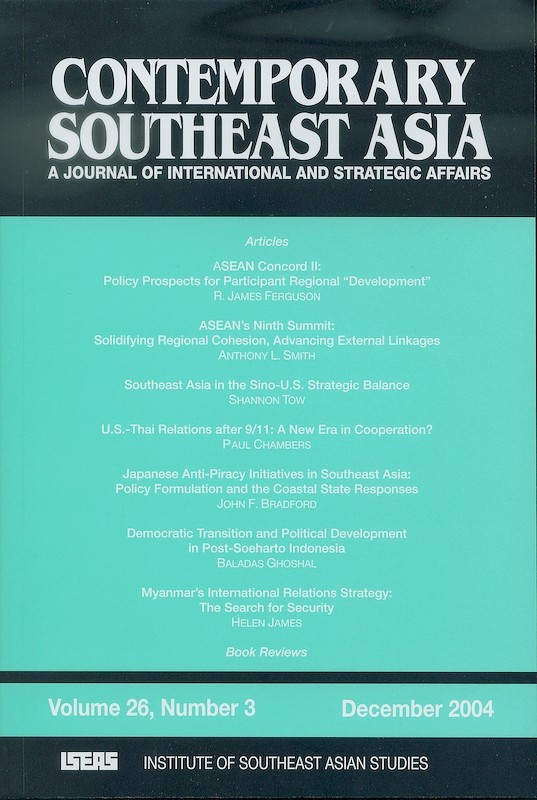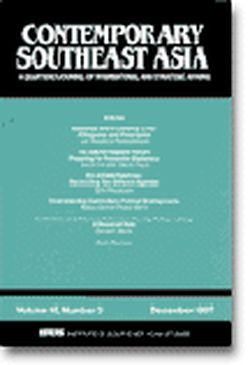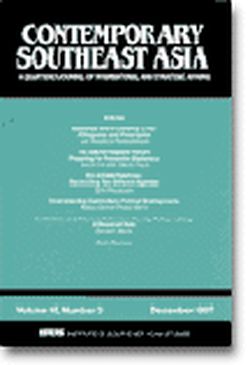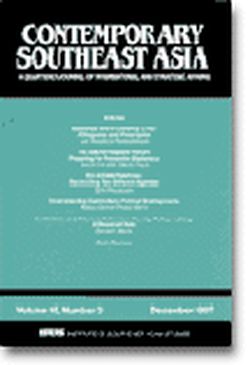Contemporary Southeast Asia: A Journal of International and Strategic Affairs Vol. 15/2 (September 1993)
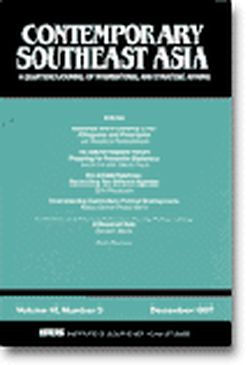
Date of publication:
September 1993
Number of pages:
124
Code:
CS15/2
Contents
-
Preliminary pages
- ARTICLES
-
Looking for Democratization in Post-Soeharto Indonesia, by Chua Beng Huat , author see abstractThe social inequalities of capitalist development, the state's declining position as the economy deregulates and the awaited "retirement" of President Soeharto have conjuncturally ushered in the return of a desire for democratization in Indonesia. Central to the discussion in this article is the role of the collectivist ideology of Pancasila. Western analysts regularly dismiss Pancasila as a "self-serving" ideology with which the Indonesian regime justifies the status quo. Indonesian activitists are, however, in varying degrees committed to it and are able to utilize it as a political resource for the critique of the regime. What is being fashioned under the ideology is potentially an explicitly anti-liberal and anti-individual form of democratic polity.
-
Liberalization in Myanmar: How Real Are the Changes?, by David I Steinberg, author see abstractThe State Law and Order Restoration Council regime in Myanmar has over the past one and a half years undertaken aspects of political liberalization that have been both cosmetic and substantive in nature. Important continuities, such as direct military authority over civilian affairs, are, however, still apparent. This article argues that both the changes and continuities in Myanmar have not altered the basic nature of its body politic. In fact, the changes that have occurred since early 1992, have largely been tactical rather than strategic in nature, and have only had the effect of placing into sharper relief the inherent tensions and contradictions in the society as a whole.
-
Vietnam's Inconsistencies Between Political Structure and Socio-economic Practice: Implications for the Nation's Future, by Clifford J Shultz II, Khai Le, authors see abstractThe article assesses political reform in Vietnam within the context of unique traditional Vietnamese governance and current social, economic and political developments. Extant documents, to which most scholars do not have access, and trends were examined. The conclusion is that the reform process is gaining momentum and will continue to move forward, both economically and politically, irrespective of the Vietnamese government's rhetoric; and the political reform and resultant socioeconomic changes will enhance emerging democratic principles and Vietnam's ambitions for "Asian Tiger" status.
-
ASEAN's Bridges to Vietnam and Laos, by Michael Antolik, author see abstractVietnam and Laos have acceded to ASEAN's Treaty of Amity and Co-operation, bringing them into the ASEAN political process. This rapprochement was preceded by initiatives characteristic of behaviour between ASEAN partners; bilateral consultations and development of trade and investment ties were begun significantly with those ASEAN members which had been most suspicious of Vietnam. To that extent, the Treaty con be seen as confirming and articulating economic co-operation and evidence of amity already demonstrated.
-
The United Nations' Peacekeeping Operation in Cambodia: Overview and Assessment, by Ramses Amer, author see abstractThis article provides an overview and assessment of the United Nations' peacekeeping operation in Cambodia. The peacekeeping operation was successful from the point of view of registration of voters and the impressive turn- out in the elections. Nevertheless, with the persistent occurrence of political violence in the country, the United Nations failed to create a truly politically neutral climate ahead of the elections. In the military field, the demobilization and cantonment process had to be abandoned, as the Party of Democratic Kampuchea (PDK) refused to join in the process. After the elections, an Interim joint Administration was created by the four parties represented in the Constituent Assembly and the armed forces of all parties, except the PDK, were merged. The United Nations Transitional Authority in Cambodia will be gradually withdrawn up to mid-November 1993.
- REVIEW ARTICLE
-
Democracy and Civil Society: Growth Model and Area Diversity, by John Girling, author
- BOOK REVIEWS
-
BOOK REVIEW: Human Rights in Cross-Cultural Perspectives: A Quest for Consensus edited by Abdullahi Ahmed An-Naim, by Amyn B Sajoo, author
-
BOOK REVIEW: Peace Accords and Ethnic Conflict edited by K M de Silva and S W R D de A Samarasinghe, by David Carment, author
-
BOOK REVIEW: Vietnam Data Bank: 1976-1991 edited by Adam McCarty, Merlyn Paulagui and Vu Quoc Huy, by Carolyn L Gates, author

